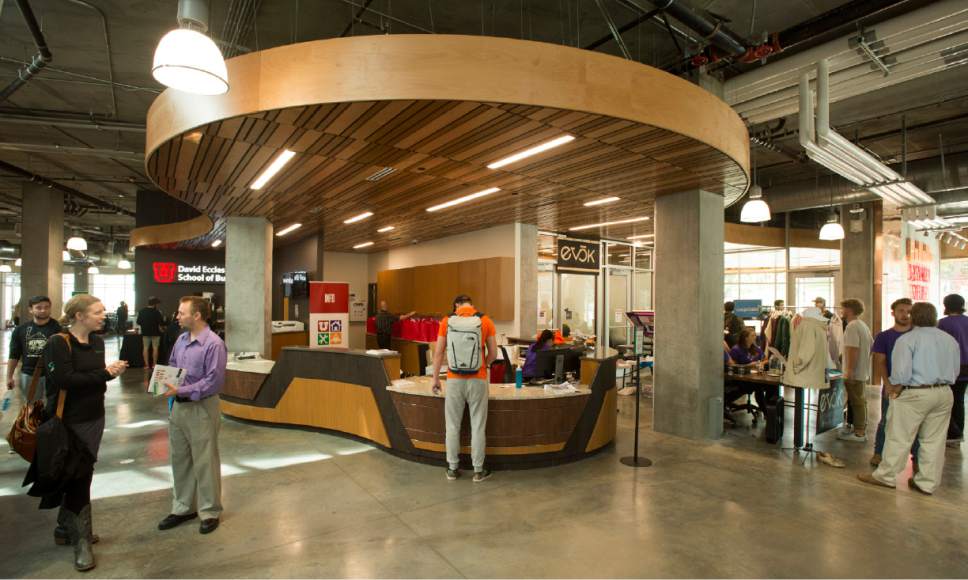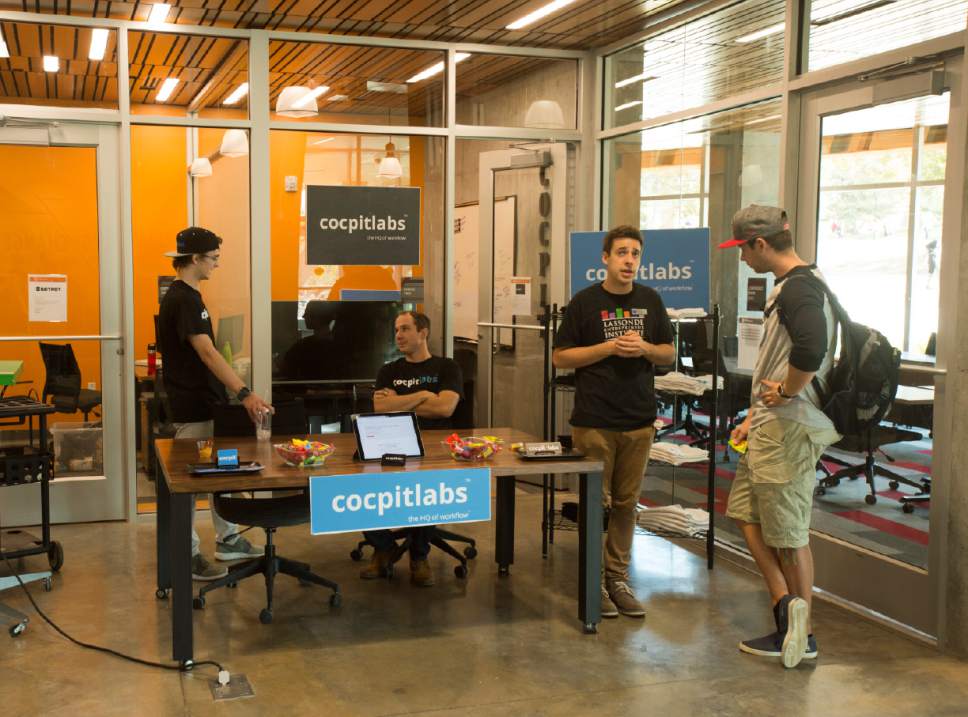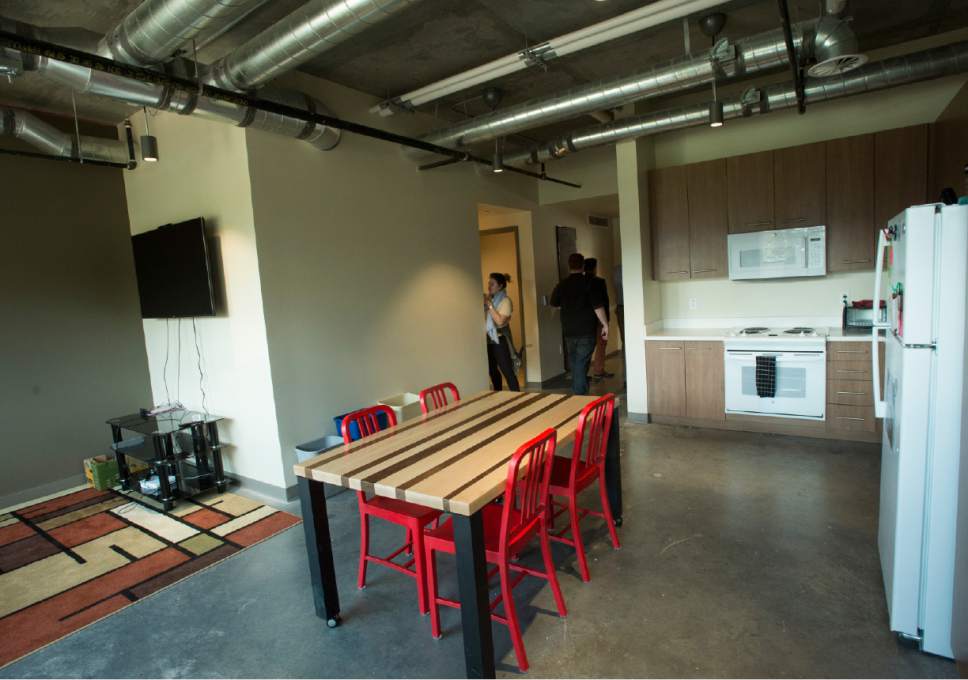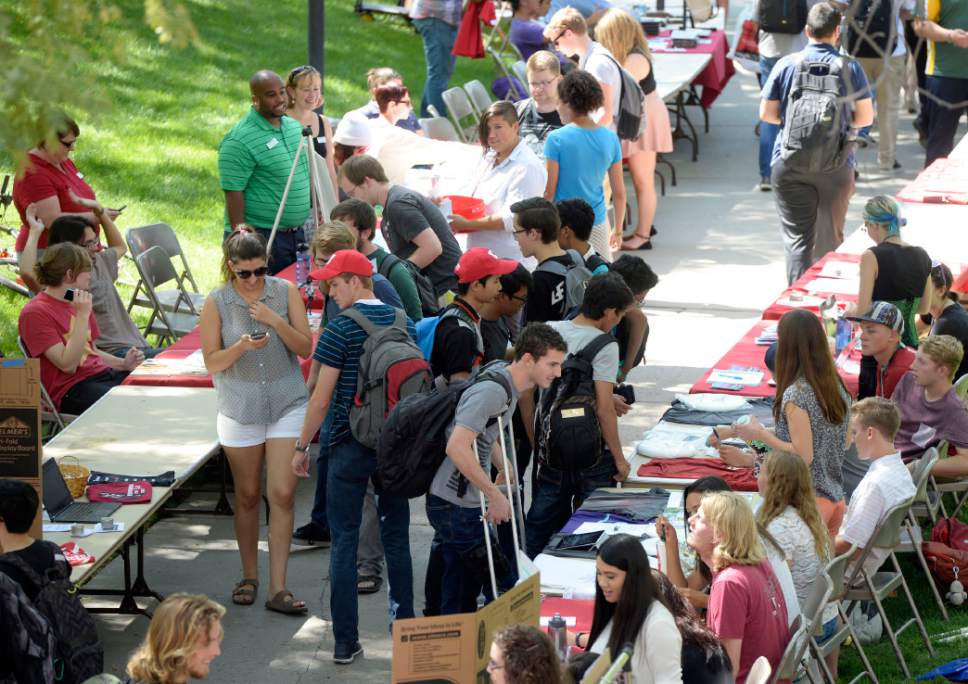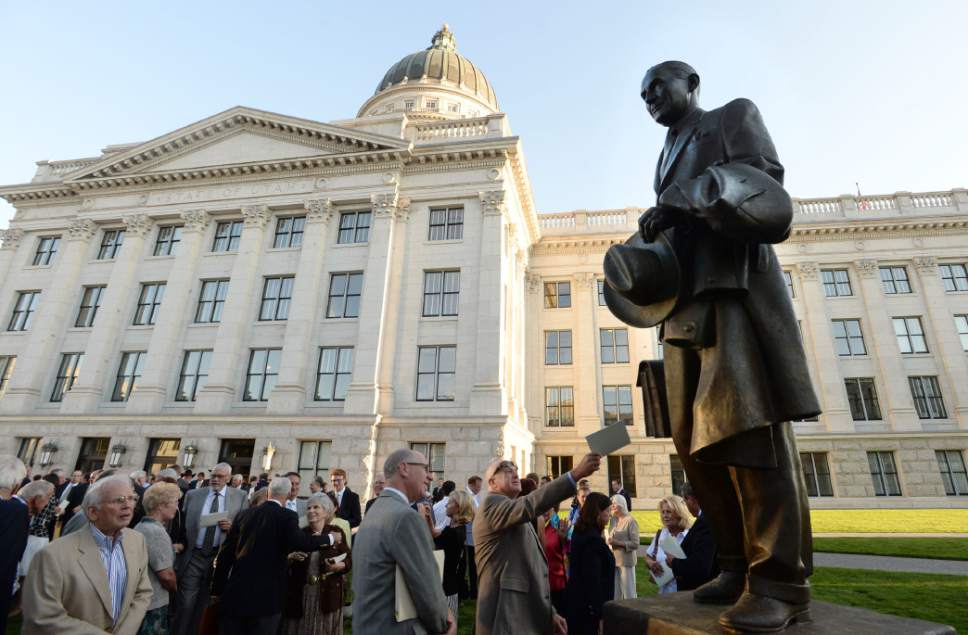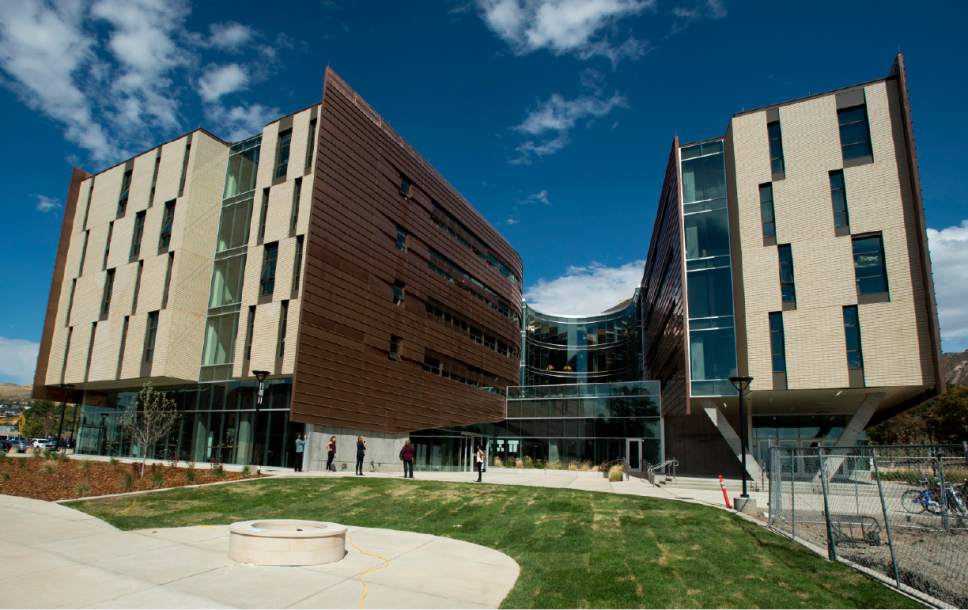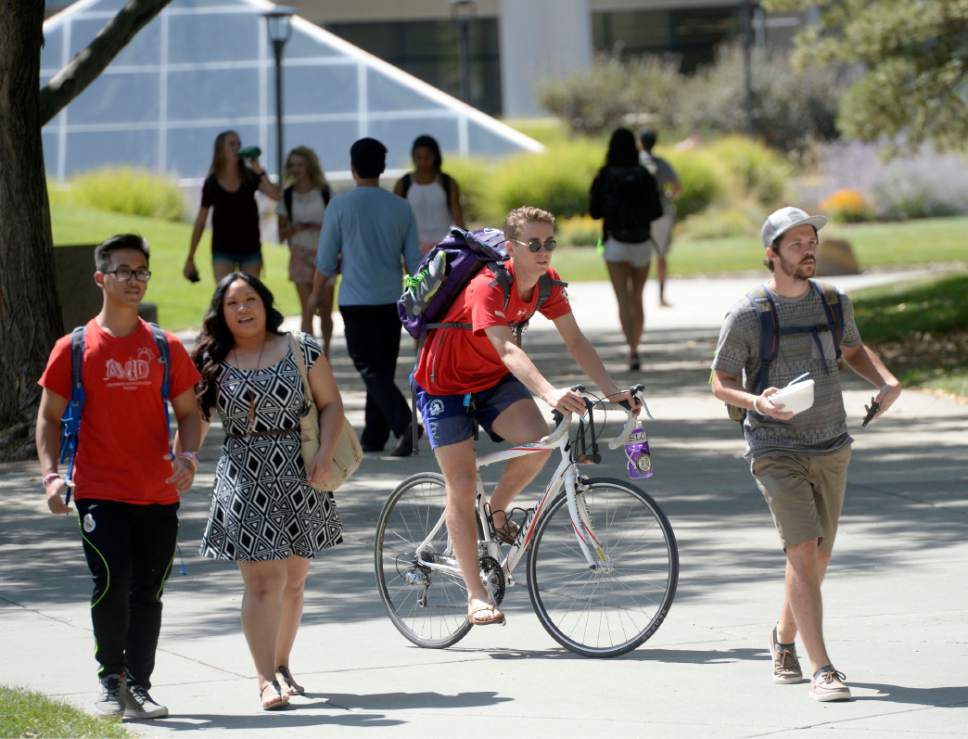This is an archived article that was published on sltrib.com in 2017, and information in the article may be outdated. It is provided only for personal research purposes and may not be reprinted.
Utah native Marriner Eccles never had a formal education in economics, but the principles he espoused as Federal Reserve chairman from 1934 to 1948 helped shape how the country emerged from the Great Depression.
To do justice to his legacy, descendants who manage two Eccles family foundations are donating $10 million to the University of Utah's David Eccles School of Business to establish the Marriner S. Eccles Institute for Economics and Quantitative Analysis.
Their $10 million contribution is being matched by the Charles Koch Foundation, which in May teamed with another prominent Utah family, the Huntsmans, on a $50 million donation to Utah State University's business school.
For the universities, these philanthropic donations are important supplements to public funding, critical to their efforts to develop sophisticated departments doing groundbreaking research and producing graduates who are immediately employable and capable to making meaningful contributions to society.
There has been criticism of the Koch donations to USU and 300 other universities as an effort by brothers Charles and David Koch to inject libertarian and conservative ideology into higher education.
Foundation spokesman John Hardin discounted that perspective, saying his organization believes a diversity of ideas promotes critical thinking and "a platform where [competing] ideas have the freedom to interact."
U. President David Pershing said the partnership with Eccles and Koch foundations will advance the science of economics with data-driven research and, just as importantly, "enhance the breadth of opportunities for Utah's students to become outstanding economists and leaders for the future."
Taylor Randall, the U.'s business school dean, said faculty members developed the institute's concept based on input from business leaders eager to find academic stars trained in statistics, economic reasoning and quantitative theory — areas of expertise applicable from political science to the economics of health care.
Randall expects to have an inaugural class of 20 to 30 students in the program this fall, students "who are the best and the brightest, the kind who will go on to investment banks and consulting firms, raising the profile of the business school."
"The most exciting part," he added, "is that we get to use a name that means a lot in economics — Marriner Eccles. You can't pick another person with more influence on the economic history of the United States and the world. We're lucky to have him and his heritage in our backyard."
Four members of the Eccles family — Spencer Sr., Hope Eccles Quarles, Lisa and Spencer Jr. — announced the donation Thursday in the First Security Bank building office where Marriner Eccles worked after he reshaped the Federal Reserve during the presidencies of Franklin Delano Roosevelt and Harry Truman and helped create the World Bank and the International Monetary Fund.
Those Family members manage the George S. and Dolores Dore Eccles Foundation and the Marriner S. Eccles Foundation that provided half of the new institute's funding.
Spencer Eccles Sr. said his uncle would appreciate the institute's academic ambitions because he did not have a formal business education, learning on the fly while running the family's bank, construction, farming and lumber companies after his father David's death at an early age.
"We're proud of all the things he did," the senior Eccles said.
"Marriner came to his views, and his whole economic theory, by being observant and participating in [economic] discussions," said Hope Eccles Quarles, noting that family members were impressed by the Koch Foundation's "thoughtful and disciplined ways of approaching situations that could make a difference."
"Like us," she added, "they aren't trying to put forth an ideology. They're trying to expose students and faculty to opportunities for research and to have conversations, arguments and questioning about a full range of ideas to get the best of all possible solutions."
Her brother Spencer Eccles Jr. became acquainted with the Koch Foundation while serving as executive director of the Governor's Office of Economic Development.
"I got to know them and saw what they were doing, from education to criminal-justice reform to trying to eliminate intergenerational poverty. Those issues resonated with us," he said, predicting that the institute will supplement the Lassonde Entrepreneur Institute and the Kem C. Gardner Policy Institute in vaulting the U. business school into the upper echelons of higher education and making the state more attractive to world-class companies.
That's the goal, said the Koch Foundation's Hardin.
"These are programs where you have entrepreneurial faculty looking for exciting ways to explore ideas that enable people and society to prosper," he said. "For us, it's an honor to partner with a family with such a long and powerful legacy supporting the university."
The donations have allowed the U. business school to hire three top-flight faculty members to run the institute, Taylor said, with prospects for hiring six more similarly qualified economics professors in the next few years. In addition, $1.6 million in scholarships will be available to selected students.
Leading institute figures will be Adam Meirowitz, Scott Schaefer and Luis Rayo, Stanford-educated professors who have worked for renowned business schools at Princeton, Northwestern and the London School of Economics, respectively.
Editor's Note • Paul Huntsman is the owner and publisher of The Salt Lake Tribune


